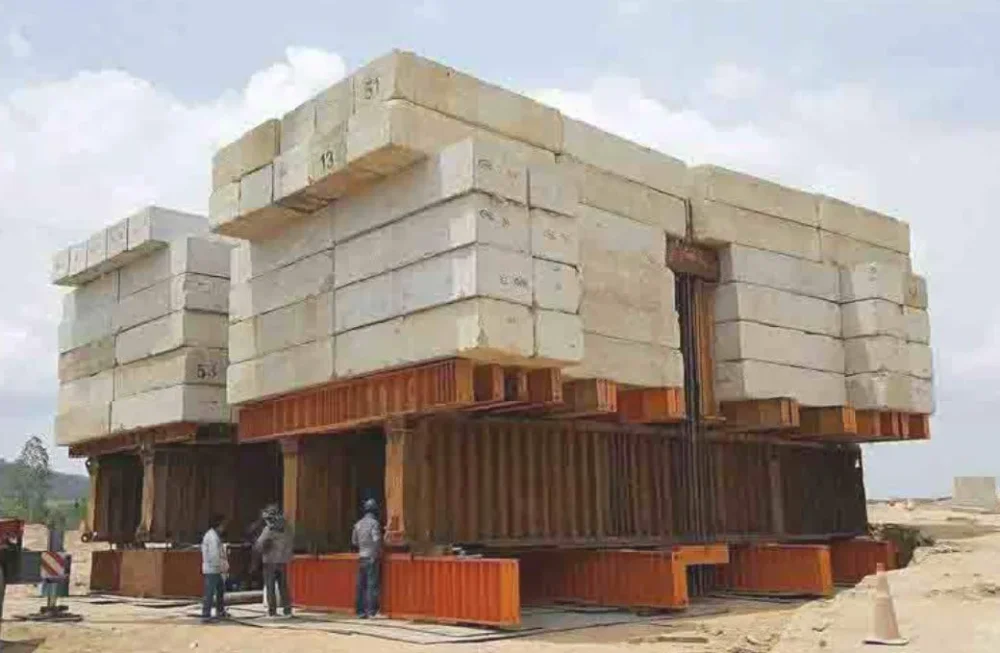Pile Testing Services: A Crucial Step in Foundation Engineering
A pile testing service is a field test conducted to determine a pile’s bearing capacity. In foundation engineering, it is one of the most reliable methods of assessing whether a pile can safely carry the intended structural loads.
This is critical for ensuring the safety and stability of a structure, especially in high-rise buildings, bridges, industrial plants, and other load-intensive projects.
Pile testing services help verify the design assumptions made during geotechnical investigations and provide data that can lead to design modifications if necessary. They are essential in minimizing the risk of foundation failure, excessive settlement, or structural instability.

What Are the Different Types of Pile Load Tests?
There are two primary types of pile load tests:
- Static Load Test: This is the most common and accurate method. A static load is gradually applied to the pile either in compression, tension, or laterally. The load is maintained while the corresponding settlement or displacement is measured. Static load tests are subdivided into
- Compression Load Test
- Tension Load Test
- Lateral Load Test
- Compression Load Test
- Dynamic Load Test: In this method, a hammer impact is used to simulate load, and sensors record the pile’s response. This method is quicker and more economical, but is less accurate than the static method.
- Integrity Tests: These are not load tests per se but are often used alongside them to assess the structural integrity of the pile. Examples include sonic logging and low-strain integrity testing.
At Forever Engineering Ltd., our skilled engineers and modern equipment ensure that every type of pile load test is performed with precision, efficiency, and strict adherence to industry standards. We tailor our testing approach based on your project’s soil conditions, pile type, and structural requirements, delivering trustworthy results you can build on.
Benefits of Pile Testing Services
- Accurate Load Capacity Evaluation: Confirms the actual capacity of piles under site conditions.
- Design Verification: Helps validate or modify the foundation design based on field performance.
- Risk Reduction: Reduces the chances of foundation failure by ensuring load-bearing performance.
- Quality Assurance: Confirms that the workmanship and materials used meet the required standards.
- Cost Optimization: Prevents overdesign or underdesign, optimizing the cost of the foundation.
Procedure of Pile Testing Services
The typical procedure involves
- Test Setup: Install the necessary loading platform, reaction system, and measuring equipment.
- Pile Preparation: Clean and cut the test pile head to the correct level.
- Initial Readings: Record initial settlement or displacement values before load application.
- Load Application: Apply load in predetermined increments, usually 25% of the estimated pile capacity.
- Monitoring: Observe and record the settlement at each load level over time.
- Holding Time: Each load increment is held for a defined period.
- Final Readings: Once the maximum load is applied and the required duration is met, take the final readings.
- Unload: Gradually remove the load and monitor recovery.
At Forever Engineering Ltd., we pride ourselves on adhering to these procedures with discipline and precision. By following best practices and using advanced equipment, we deliver dependable results that form the foundation of safe, efficient, and long-lasting structures.
What Equipment is Required for Performing a Pile Load Test?
The main equipment includes:
- Hydraulic jack and pump system for load application
- Reaction frame or kentledge for counteracting the applied load
- Dial gauges or digital displacement sensors to measure settlement or uplift
- Load cells or pressure gauges to measure applied loads
- Steel beams, anchor piles, or concrete blocks to stabilize the reaction system
- A data logger is optional for automated readings
At Forever Engineering Ltd., we understand that the success of a foundation depends on the accuracy of its testing. That’s why we invest in the best materials and testing equipment available. Every component used in our pile load testing process is selected for durability, precision, and compliance with engineering standards.
What is the typical duration of a pile load test?
The duration varies depending on the type of test:
- Static Load Test: 24–48 hours, including setup and readings, though load application may take around 8–12 hours.
- Dynamic Load Test: Typically completed within a few hours.
- Preparation and analysis can take additional time, especially for large-scale projects.
How to Calculate Pile Capacity
Pile capacity can be calculated using test data and interpreted through different criteria:
- Settlement Criteria: Based on permissible settlement values, usually 10–12 mm for working load.
- Ultimate Load Capacity: Defined as the load at which continuous or sudden settlement occurs.
- Interpretation Methods:
- Davisson’s Offset Limit
- Chin-Kondner Method
- Butler & Hoy Method
- Hansen’s Method
- Davisson’s Offset Limit
The allowable load is usually taken as 50% of the ultimate load, with an appropriate factor of safety applied.
What is the Difference Between Static and Dynamic Pile Load Tests?
Both static and dynamic pile load tests are used to assess the load-bearing capacity of piles, but they differ significantly in approach and application.
- Static Load Test:
A load is applied gradually using hydraulic jacks or dead weights, and the pile’s settlement is recorded. This method gives the most accurate representation of how a pile behaves under actual loading conditions.
- Dynamic Load Test:
A hammer impact is delivered to the pile head, and sensors measure acceleration and strain. The test is quicker and more cost-effective, but less accurate for certain soil types or pile conditions.
Key Differences:
- Accuracy: Static is more accurate; dynamic is indicative.
- Cost and Time: Static is expensive and time-consuming; dynamic is faster and cheaper.
- Equipment: Static uses hydraulic systems; dynamic uses hammers and sensors.
How Does Soil Condition Affect the Results of Pile Testing Services?
Soil condition plays a critical role in interpreting pile testing services results. Different soil types exhibit varied load-transfer mechanisms:
- Cohesive Soils: May show delayed settlement due to pore water pressure. Requires long-term monitoring during static load testing.
- Granular Soils: Respond quickly to load, making them more suitable for dynamic testing.
- Soft or Loose Soils: Can exaggerate settlement, leading to conservative capacity estimates.
- Dense or Hard Soils: May result in high end-bearing resistance and low settlement.
Moisture content, groundwater level, and layering also influence pile behavior under load.
What Are the Common Challenges Encountered During Pile Testing Services?
Some of the frequent challenges in pile testing services
- Improper Reaction Setup: Weak or unstable reaction frames can cause uneven loading.
- Instrumentation Failure: Faulty sensors or gauges can result in inaccurate data.
- Soil Disturbance: Pile installation or test setup may alter soil properties.
- Environmental Factors: Rain, vibration, or temperature changes can affect readings.
- Logistical Issues: Limited site space, heavy equipment mobilization, or access restrictions.
Proper planning, calibration, and supervision are essential to minimize these issues.
Can pile testing services be performed on both cast-in-situ and precast piles?
Yes, pile testing service can be conducted on both cast-in-situ and precast piles.
- Cast-in-situ Piles: These are tested after curing. Care must be taken to ensure the concrete has gained adequate strength before testing.
- Precast Piles: Can be tested soon after installation once the pile has settled. They often provide quicker testing schedules.
Pile testing services can be performed on both cast-in-situ and precast piles, and at Forever Engineering Ltd., we provide comprehensive testing services for both types. Our experienced team uses advanced equipment and follows international testing standards to ensure reliable results.
What Is the Role of Safety Factors in Evaluating Pile Testing Services Results?
Safety factors are applied to account for uncertainties in:
- Soil variability
- Load estimation errors
- Construction imperfections
- Long-term performance
After determining the ultimate bearing capacity from pile testing services, a safety factor is applied to derive the allowable load:
Qallowable=Qultimate FOSQ_{allowable} = \frac {Q_{ultimate}} {FOS} Qallowable=FOSQultimate
This ensures that the pile can support its design loads even under unexpected conditions, enhancing overall structural safety.
Conclusion: Pile Testing Services – A Pillar of Quality at Forever Engineering Ltd.
At Forever Engineering Ltd., we believe that a strong foundation begins with reliable data, and the pile testing services is one of the most essential tools in ensuring that reliability. By conducting thorough and accurate pile test services, we validate the strength, stability, and performance of every pile we install. Whether it’s for cast-in-situ or precast piles, our expert team uses industry-standard procedures and cutting-edge equipment to deliver dependable results.
This commitment to precision not only safeguards the structural integrity of your project but also reflects our core values: engineering excellence, safety, and long-term durability. When you partner with Forever Engineering Ltd., you can be confident that your foundation is tested, proven, and built to last.

